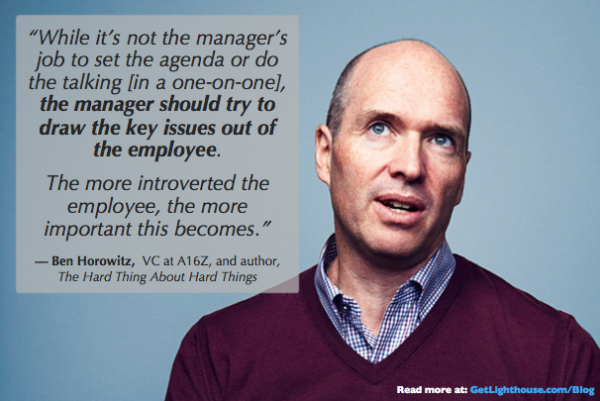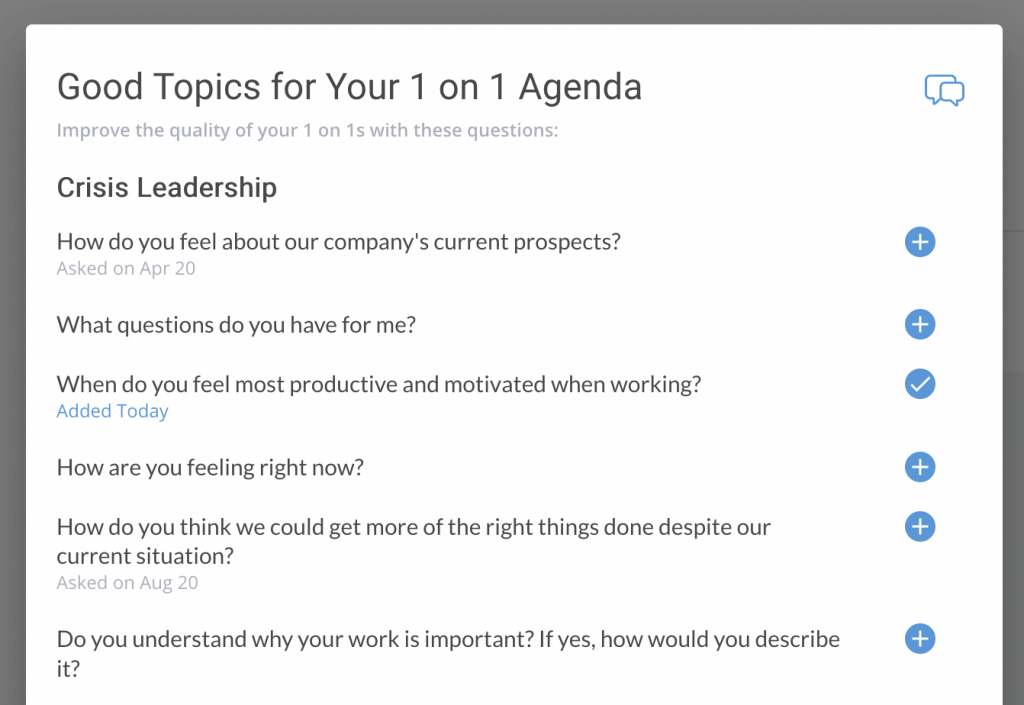Pressure makes diamonds.
It can also make a puddle of mush.
The difference is how well you adapt to crisis leadership versus leadership in good times.
Over communicate, over communicate, over communicate.
When you face a crisis, communication becomes even more important. Your team will have questions, concerns, wild thoughts, and mistaken assumptions.
The only way to clear them up and keep your team focused and effective, is to be their pressure relief valve, a good listener, and to keep your word.
Crisis leadership is defined as how you address your team's concerns and lead your team in challenging times. It involves communicating with your team about the challenges you and your company face, engaging and motivating your team to be part of the solution, and making the best of tough circumstances including, budget cuts, layoffs, and company struggles.

Your word is your bond.
Trust is the foundation of making it through any crisis. If your team doesn't trust you, or thinks you'll break your promises, you won't be their leader for long. They'll either quit, or check out on you.
So when you ask these questions we share today, make sure you:
- Ask good followup and clarifying questions.
- Practice Active Listening to repeat back what you think you heard from them.
- Paint a clear picture of next steps you'll take and that you ask of them...then keep your end of the deal.
These are all part of deeper lessons on being an effective listener you can learn about here if you need to brush up.
Everyone has to practice crisis leadership at some point.
With the unprecedented health and economic crises created by Coronavirus, and new global challenges coming since, we want to prepare you to have the tough, and necessary discussions with your team. The questions we're teaching you today will help you navigate even the toughest crisis leadership situations, whether you're facing them now, or surprise challenges strike your company or team in the future.
Table of Contents:
There are a variety of crisis questions to ask that will help you provide effective crisis leadership:
- Take the temperature and acknowledge the elephants
- Address their crisis questions & concerns
- Shift their mindset
- Remind them of their purpose & value
- Involve them in creating solutions
- Ensure progress happens together
- Further reading for you
Click on any of the topics to jump straight to the one most important to you, or get the full picture by reading this entire post.

Leading through Crisis: Questions to ask your team in 1 on 1s in a crisis.
One of the best ways to communicate with your team is through 1 on 1s. You need group discussions, email updates, and standard communication, but nothing can replace the power of the 1 on 1.
This is your one time to give dedicated, private attention to each of your team members.
Here is where you'll find out the biggest fears, concerns, frustrations and questions they're afraid to bring up elsewhere.
It's also a powerful way to build support and get buy in for what could be controversial, difficult, or unpopular (yet necessary) decisions.
Good leadership in crisis means meeting weekly.
Because so much can change in short periods of time in a crisis, and that people will often have more to say, I HIGHLY recommend you meet weekly with your team members if at all possible.
Think about how much happened each week as Coronavirus spread; in a single week in March 2020, companies went from talking about the difference between a full pipeline, and all deals on pause, or working as normal and everyone being in quarantine, working from home.
If you have a huge team, then do biweekly and adjust more frequently if some people seem to be struggling more, or are more helpful with ideas and input.
As always, there is no one-size-fits-all answer, so use your best judgment and adjust accordingly.

Great leaders ask the right questions at the right time.
With that in mind, these crisis questions to ask can help you make the most of the time you have with them for these crucial one on one meetings.
You don't want to waste the time on small talk about the weather or status updates when you could be tackling your most pressing leadership challenges and their biggest fears during this crisis.

Take the temperature & kick the elephants out
Talking as if everything is normal and that they don't notice the changes and problems is a great way to destroy trust and alienate your team. Whether the issues are mainly facing your company, or a global crisis affecting many, you need to see how they're feeling and take the issues head on.
As Sheryl Sandberg puts it so well:
"One of my favorite cartoons of all time has an elephant in a room answering the phone, saying, ‘It's the elephant.'
…Once I addressed the elephant, we were able to kick him out of the room.”
Let them vent. You need to understand what's stressing your people either at work or personally related to the crisis.
Some may be worried about a sick family member, others may have more bills than they can withstand, others may be generally afraid of layoffs or your company's future.
To open up these discussions, try asking these crisis management questions:
- 1) What are your biggest worries or concerns right now?
- 2) How are you feeling right now?
- 3) How do you feel about our company's current prospects?
- 4) How do you feel about recent events (e.g. a pandemic, global recession, etc) and how they may impact us?
- 5) How are your energy levels? How much stress or burnout are you feeling?
Especially with these questions, you want to watch their body language. Look for signs of discomfort, or withdrawing from you. You may need to ask these questions a few different ways to get them to open up.
It can be hard to know what your team is thinking, but asking them, and paying attention to what new data finds is bother employees most can help you find out.
Want to know what may be on your team’s mind in 2022? Then check out episode 18 of the Creating High Performing Teams podcast where we dive into Buffer’s yearly report on what the biggest concerns of remote workers are, and talk about post-COVID burnout.
Regardless of how they feel, be brave. It is better to get these feelings and discomfort out in the open than leaving it to speculation and false narratives.

Answer their crisis questions
In investor and serial entrepreneur Ben Horowitz's series How to Start a Startup, he did a full lecture on this essential concept of having a broad perspective. As he put it:
"You have to be able, when making critical decisions, to be able to see the decision through the eyes of the company, and the company as a whole. Which means you've gotta add up every employees view then incorporate that into your own view, otherwise your management decisions are going to have very weird side effects and potentially very dangerous consequences.
In order to incorporate other people's views into your own and the decisions you have to make, you have to hear them. And the only way you'll hear all of your team's views is if you take the time to ask.
Once you break the seal by hearing how they're feeling, it's likely there are some questions they'll have for you. Use these crisis questions to get their perspective on the present state of things and see what they do and do not understand about your situation.
- 6) What questions do you have for me?
- 7) What questions do you have about our company right now?
- 8) What can I do to help you feel more confident or comfortable right now?
These are generalized questions, which you can supplement with ones specific to your situation in the format of:
- 9) How do you feel about [recent announced change]?
- 10) How would you feel if [possible event: Layoffs, restructuring, canceled project, etc] happens?
- 11) What are your first thoughts or questions if [possible event: Layoffs, restructuring, canceled project, etc] happens?
Keep track of all of these questions from one place and more using our free 1:1 meeting template.

The key here is you're looking to understand their perspective on things. You can't read minds, but you can ask them to tell you what they think and feel.
By asking for their input ideally before a big change, or at worst, shortly thereafter, you show you care how they feel, can give them a chance to vent and potentially make moderate tweaks to the changes recognizing what you learn from their perspectives.
You can learn more about great organizational communication in our deep dive here

Shift their mindsets
Dwelling on bad news and taking in too much negative news can drain anyone of their energy. In a crisis, it can be easy to create a self-reinforcing storm of negativity, seeing the worst in everything. The only way to break it is to shift their mindset.
These questions can help refocus them on positive things, so that critical work can still get done. It also helps you understand places they find joy in their work so you can hopefully give them a bit more of that.
- 12) What helps you feel better? What do you find best helps you manage stress?
- 13) What is your favorite part of your job? Why that?
- 14) When do you feel most productive and motivated when working?
- 15) What routines help you get into your groove?
- 16) How do you structure your day to be most effective for you?
- 17) What do you like to do to recharge or decompress?
For those who have good systems, encourage them to use them as much as needed. Tensions can run high in tough times, and them knowing it's okay to step away for 10 minutes of private meditation can save a blow up or other regret.
Meanwhile, if they're not great at managing stress, teach them some things to try like meditation, journaling, gratitude lists, and well timed walks. What works best will vary from person to person, so encourage them to experiment and do what they like best, not necessarily what anyone else prefers.
You may be surprised how much a little bit of coping and stress relief can do to not only make them feel better, but improve the vibe of your whole team.
Learning how each of your team members best manages their stress is a great way to be a multiplier for your team.
For more ideas for reducing stress and improving outlooks, check out:
Remind them of their Purpose
One of the strongest motivators in any situation, but especially during a crisis is feeling a strong sense of purpose. Yet, too often, people don't realize why their work matters.
Everyone's work matters. Whether they have an internal or external customer, they would not have a job if it wasn't important to someone.
Make sure everyone on your team understands how they help others and serve your company's mission and you'll be tapping into one of the strongest intrinsic motivators you have as the Dan Pink TED talk above shows you.
Again learning about other people's perspectives, start by asking what your team members see as their purpose.
- 18) Do you understand why your work is important? If yes, how would you describe it?
- 19) How do you think your work impacts our team and company?
- 20) What made you decide to join our company and take this role? Do you feel your work has aligned with that?
- 21) What work that you’ve done here are you most proud of?
This will help you see areas that already resonate with your team. You may be able to share those with colleagues who didn't see things that way, either.
It will also then show you places you can emphasize new ways of viewing things for your team; they may not see things the way you do, or know for instance how the CEO sees their work all the time. Tell them!
Of course, you won't know how (or whether) your team understands their purpose unless you ask, so make sure you take time as you manage the crisis to see how your team sees the purpose and importance of their work.

Involve them in the solution
Your answers often can be found within your own team...if you simply ask the right question. Ask them for ideas and input, and show you care about their ideas and what they're seeing. Often they'll be closer to customers than you, which will reveal the real opportunities.
Former president and chairman of 3M, William L. McKnight was a leader who deeply understood how to tap his employees for innovative ideas. Thanks to his leadership, they've become a company that has constantly reinvented itself, coming out with new, innovative products constantly.
And how do they do that?
McKnight believed that a managers' duty was to give their employees enough room to make mistakes and innovate:
"As our business grows, it becomes increasingly necessary to delegate responsibility and to encourage men and women to exercise their initiative. This requires considerable tolerance.
Those men and women, to whom we delegate authority and responsibility, if they are good people, are going to want to do their jobs in their own way.
Mistakes will be made. But if a person is essentially right, the mistakes he or she makes are not as serious in the long run as the mistakes management will make if it undertakes to tell those in authority exactly how they must do their jobs.
Management that is destructively critical when mistakes are made kills initiative. And it's essential that we have many people with initiative if we are to continue to grow.”
Help your team contribute to your innovation, and source your best ideas from them by asking them for their best ideas:
- 22) What could we do as a team to improve in ways that will help us with our current company goals?
- 23) How do you think we could get more of the right things done despite our current situation?
- 24) What's something we're not doing today that we should to better serve our customers?
- 25) If you were CEO (or head of our team), what’s the first thing you’d do or change? Why that?
- 26) What’s something we should stop doing given our current constraints?
If you haven't asked these kinds of questions before, you may be surprised how much they have to say. Often, especially front line individual contributors see a lot that's broken and missed opportunities, they just don't know they can do anything about it.
Listen carefully and encourage their best ideas. Take the best ones you hear 1 on 1 and bring them to your team as a whole to work together. These kinds of ideas are how many have turned the tide and saved their companies.
Want more ideas of questions to ask your team to get innovative ideas to improve your company? Try these:
- See Section 4 in One on One Meeting Questions Great Managers Ask their Teams
- If you're a senior leader, try asking some of the Team Feedback questions from this list of 47 Skip Level 1 on 1 Questions to Improve Your Managers and Engage Your Employees

Be clear and accountable
When you talk about all or some of the crisis questions above, you're going to hear a lot of interesting things.
First and foremost, you need to be taking notes. It's what the best managers do, regardless of where the meeting is happening, because it keeps them organized and shows they take the discussion seriously.

But notes alone are not enough.
You're in crisis after all. Action is how you'll save your team and company.
This means there's a few more absolutely essential question to ask regardless of how many of the previous questions you asked:
- 27) What can we both do before we meet again to make progress on what we discussed today?
- 28) Do you see any obstacles to the plans we’ve discussed? What can we do to overcome them?
- 29) What resources or help do you need to move forward and act on what we discussed?
These simple questions help ensure you and your team member are on the same page about what you discussed. With this question you'll be able to establish:
- The most important ideas coming out of the meeting.
- Ways to build momentum from what you learned and explored in your conversation.
- Clearly establish what each of you will do to make progress on what you talked about, shifting words to actions.
- Remove any blockers and anticipate problems that could block making progress.
Having a bias towards action is one of the best ways to rapidly turn around your fate.
Imagine the difference between taking 2 weeks to act and 1 week to act when you only have 12 weeks to live. The team acting in a week can try 12 things in the time it takes the other team to try 6. That's a lot more swings.
By setting expectations for action in the meeting and getting in front of potential problems or blockers, you're maximizing potential energy from the meeting and ensuring momentum is already building towards addressing your biggest challenges.

Leadership in crisis means leading the charge ahead into uncertainty
Leading in a crisis is hard. No one said it would be easy.
It requires you to manage your stress, be strong for your team, and look directly at some of the ugliest problems your team may be dealing with.
By being transparent and involving your team, you'll build trust with them and often find better solutions than you would if you tried to figure everything out on your own.
That starts by using questions like those we covered today to open up the tough discussions you have to have in a crisis.
But what if I don't have answers for them?
While you hope to get good answers and ideas from them, they'll also have crisis questions to ask you. Unfortunately, sometimes you either won't have a good answer or know you can't tell them.
As much as you can, tell them the truth. Be as transparent as you can.
This finding is supported in this 3-min read from Keith Ferrazzi's HBR article about the importance of candor to workplace performance.
"We found that the teams that scored the lowest on candor saw the poorest financial returns among those banks during the last global economic crisis.
In contrast, groups that communicated candidly about risky securities, lending practices, and other potential problems were able to preserve shareholder value.
[…]We identified "observable candor” as the behavior that best predicts high-performing teams."
As hard as it may be to do, being transparent with your team when things are at their worst is the best way to turn things around.


Further Reading to Rise to the Occasion when Practicing Crisis Leadership
It's a totally different game to lead in a crisis, and we're here to help you as you navigate the new terrain. Here's some additional posts and reading that can help you:
- Learn how to keep your team happy and motivated in a recession.
- If you unfortunately have to let people go, learn how to do layoffs well, even if remote here.
- You can't afford to lose your best people, so keep in mind these 13 reasons why great employees quit.
- Boost your resilience when times get tough with this post.
- If you got rid of your office during COVID, help your team successfully transition to remote work with these questions to ask them here.
- Remember your actions matter most: People Leave Managers, not Companies.

What are crisis management skills?
Crisis management skills are your ability to be at your best when things are their worst at work. A crisis can take many forms, but usually is best defined by the stakes: your team or company as a whole is at risk of not making it.
If you're leading a team in crisis, you need to involve your team in solving the problems you face and enlist their help in turning things around. To do so, ask them questions about:
1) How they're feeling about the tough news
2) Their ideas to improve your company and team
3) Their mindset (and shift it to a more positive one)
4) What they see as their purpose and the importance of their work
5) Their questions and concerns
6) How you can work together to make things better
By involving your team you can better navigate the crisis successfully. Learn more questions and further details on crisis leadership here.
What is a crisis leadership?

Crisis leadership is defined as how you address your team's concerns and lead your team in challenging times.
It involves communicating with your team about the challenges you and your company face, engaging and motivating your team to be part of the solution, and making the best of tough circumstances including, budget cuts, layoffs, and company struggles
By involving your team you can better navigate the crisis successfully. Learn more questions and further advice on crisis leadership here.
How can I be a good crisis manager?
Leading in a crisis is hard. It requires you to manage your stress, be strong for your team, and look directly at some of the ugliest problems your team or company is dealing with.
By being transparent and involving your team, you'll build trust with them and often find better solutions than you would if you tried to figure everything out on your own.
When you're leading a team in crisis, you should involve them by:
1) Finding out how they're feeling about the news and challenges you face
2) Listen to their ideas to improve your team and company's circumstances
3) Shift their mindset to a more positive, hopeful one
4) Remind them of their purpose and the importance of their work
5) Address their questions and concerns
6) Work together with them to make things better
By involving your team you can better navigate the crisis successfully. Learn more questions and further details on crisis leadership here.
How do you lead in a crisis?
Leading in a crisis presents a whole new set of challenges, with the pressure dialed up for you and your team.
To succeed at crisis leadership, you need to engage your team and ask them questions about:
- How they're feeling about the news or challenges
- Their ideas to improve your company or team
- Their mindset (and shift it to a more positive one)
- What they see as their purpose and the importance of their work
- Their questions and concerns
- How you can work together to make things better
By involving your team you can better navigate the crisis successfully by getting more, good ideas, and ensuring you have your team's support. Learn more questions and further details on crisis leadership here.




